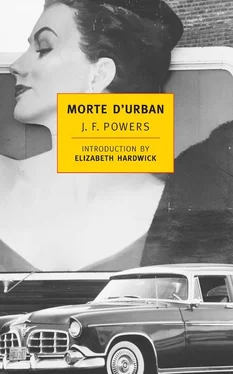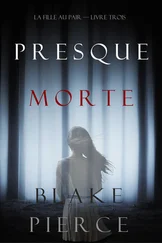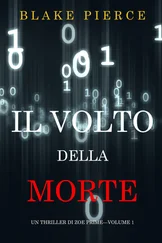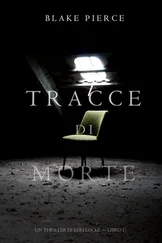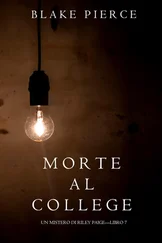“The Boss, he’d be here, Fahdah, only he had to go out East. Put him on the New England States Monday. Back tomorrow.”
Father Urban relinquished his traveling bag. “No, I’ll carry this one,” he said, keeping the attaché case. “How was he feeling, Paul?” Billy had had a cold.
“Good. Too goddamn good, if you ask me. Tried to give me a raise. You know what I told him, Fahdah?”
“No,” said Father Urban, but he thought he did. It had happened once in his presence — Billy threatening Paul with more money and Paul threatening to hand in his resignation because he had enough income tax to pay as it was, and so on.
They were descending to the lower level of the LaSalle Street Station. “I told him I wouldn’t change places with him for a million bucks.”
Father Urban deliberately missed his cue but let it appear that he was concentrating on the steps.
“That’s what I told him.”
“What’d he say to that, Paul?”
“I meant it, Fahdah.”
“I’m sure you did, Paul. Was anyone with him at the time?”
“Some guy. I don’t know.”
Father Urban had thought so. He had an idea there was always somebody else present when Billy and Paul put on their little show.
The gray Rolls was parked under a “No Parking” sign. Paul opened the rear door for Father Urban and pushed the bag in after him. When Paul was seated behind the wheel, Father Urban leaned forward, opened the glass partition, and stuck a Dunhill Monte Cristo Colorado Maduro No. 1 in the slot between the chauffeur’s head and ear. As usual, Paul made too much of it. He was accustomed to Billy, though, and Billy was a stickler for gratitude. Of course, where Billy was concerned, there was much to be grateful for.
“Tell me, Paul. Have you seen anything of Father Gabriel?”
“Naw,” Paul said, as if Father Urban and the Clementines had nothing to fear from Father Gabriel and the Dalmatians.
“Nice man,” said Father Urban, trying to throw Paul off the scent.
For a few minutes in the Loop, Paul was quiet, fencing with traffic. At one corner, at the last possible moment, he gave way to a truck driver who called his bluff, but at the next corner he was himself again, cutting the Rolls through a soft surf of pedestrians. On Michigan Avenue, he relaxed and said to Father Urban, “Hey, the Chief ran into the Super Chief. It was awful.”
“Too bad.” Paul was only talking about Billy’s electric trains, but it did seem a shame to Father Urban that wrecks were so frequent on Billy’s railroad. (The ballroom of his big house was given over to it.) It made Father Urban nervous to watch Billy perform split-second maneuvers with the little trains. It was almost as if he expected them to save themselves.
“So I put ’em in the basket.”
“Too bad.” Father Urban had seen the basket — a large laundry basket filling up with damaged equipment to be taken out to the veterans’ hospital for repairs.
“I don’t know,” Paul said. “Those boys make out all right.”
“I know.” Father Urban knew that Billy supplied the vets with the tools and materials they needed to rehabilitate the little trains for him, and that he was always thinking of things to brighten their days — color TV sets, for instance — and still….
Paul, waiting for a light to change, raced his motor at a pedestrian. Instead of hurrying across the street, the pedestrian, an elderly, well-dressed man, stopped directly in front of the Rolls just as the light turned green and, with gestures, appeared to be inviting Paul to run over him. “I wouldn’t give you the satisfaction!” Paul yelled out the window. The old pedestrian smiled and held his position. Cars in the next lane proceeded while those behind Paul were honking. Then the light changed to red again, and the pedestrian continued on his way, leaving Paul to sit through another light.
“How do you like that?” he said.
Father Urban said nothing. He rather admired the pedestrian for standing up to Paul and the Rolls — after all, they had started it.
“Ever see anything like that, Fahdah?”
“Oh well,” said Father Urban, and fell silent. Billy made just such demands on him — demands that couldn’t quite be met in conscience. In restaurants, when Billy made a disturbance and sent back the steak, Father Urban would say, “Oh well,” and try to smile. He was reluctant to admonish Billy and hoped that the day would come when he’d know how to bring out the best in the man. Some of the most powerful figures in history had been spoiled children like Billy, but humble monks had brought them to their knees and turned their bloody hands to the service of God. Not running off the mouth at every opportunity, but knowing when to cast one’s pearls, and how — that, in the best sense of the word, was priestcraft. So, until Billy was ready , it was important not to antagonize him. As for Paul, he was only an aspect of Billy, and would come later, as Constantine’s legions had come later. Nevertheless, Father Urban wished that he could exercise more power over Paul. The obscene noises the chauffeur made when he saw a pretty girl were disturbing (after all, Paul was a husband and a father) and hard to ignore. Father Urban was always pleased when Billy said something, as he did now and then: “Grow up, Greaseball,” or “Why don’t you check yourself into a nice, quiet institution, friend?”
There was a parking place near the new location, but Father Urban was firm about being let out in the street. He was afraid that Paul, if he got the car parked, would recall his first impressions of the firetrap formerly occupied by the Clementines. “In there ?” Paul had said to himself when he saw the building, “In that ?” when he saw the old bird-cage elevator, and “Down there ?” when he saw the dim corridor at the end of which the Clementines had their offices. Father Urban hadn’t minded hearing it the first couple of times but would hold still for it now only when Billy was present. Father Boniface, along on one such occasion (the first and last for him), had left in the middle of it, which must have looked like ingratitude to Billy.
“Not like the old days, huh, Fahdah?”
“Thanks a lot, Paul,” said Father Urban, and made off with his attaché case and bag. Paul hadn’t reminisced under such circumstances before — he was blocking traffic — but apparently he had been about to try.
In the reception room, Father Urban met Father John, an older man for whom, in a way, he had a lot of respect. “How’s it going, Jack?”
“Not so good, Urban.”
“I don’t believe it.” Father Urban did, though. Jack should have been taken off the road long ago — put to teaching, or encouraged to write again, as he had in his youth. Now and then Father Urban threw him an engagement, but he didn’t like to do it. Jack didn’t generate much heat from the pulpit, and a number of pastors who had booked him for a mission were never heard from again.
Jack had removed his bifocals and was polishing them on his not too clean handkerchief. Without them he was almost blind, and that part of his face ordinarily under glass looked indecently exposed. “In town long, Urban?”
“Leaving tomorrow. St Paul.”
Jack was staring at Father Urban, pretending that he could see. He had been about to say something, it seemed, but had changed his mind.
Father Urban laid a hand on his arm, rather startling him, for he hadn’t seen it coming. “I’ll be seeing you,” Father Urban said. As he was leaving the room, he glanced back and thought how well poor Jack, with his glasses off, went with the pictures.
Father Urban picked up his mail from Father Boniface’s secretary. “How’s everything with you, Brother?”
Читать дальше
